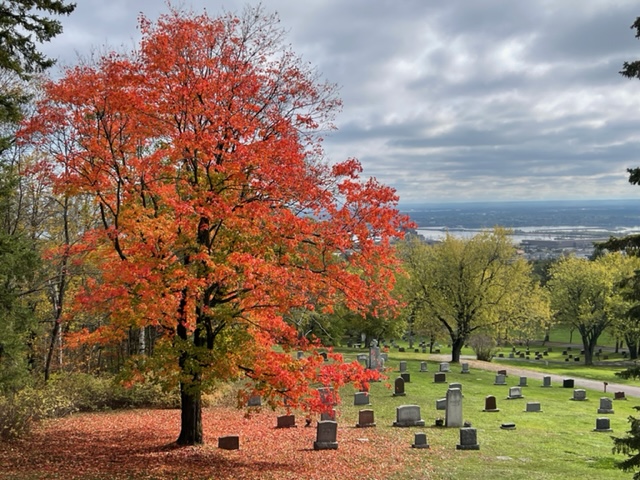
“Asking yourself the question of your own legacy (what do I wish to be remembered for?) is the beginning of adulthood.”
(St. Augustine)
“Show me, O Lord, my life’s end and the number of my days; let me know how fleeting is my life. You have made my days a mere handbreadth; the span of my years is as nothing before you. Each man’s life is but a breath.”
(Psalms 39:4-5a NIV84)
I was asked to speak recently at a memorial service for an extended family member, and in the process of preparing my talk, this key phrase stood out:
Memorial services are opportunities for us
to remember and to be reminded.
First, we remember the friend or family member that has passed on. We take turns sharing stories and memories about our loved one, which brings us comfort and joy in the midst of our grief.
Secondly, memorial services provide opportunities for us to be reminded about what really matters in life – things of lasting significance and eternal meaning. They remind us of the truth: one out of every one person eventually dies.
And one day, each of us will have a memorial service of our own. It makes you wonder, What will people say about me after I’m gone?
When you come to the end of your life and have nothing but death to look forward to and nothing but memories to look back upon, what will you need to see to determine that your life was significant and well spent?
As someone once said, “Facing the reality of death has a way of ‘concentrating one’s mind.’”
It causes us to focus on the big questions of life:
- Why am I here?
- What is the meaning of life?
- Am I living for the things that really matter in the end?
- And what does really matter in the end?
Jesus provides an answer: “What good will it be for someone to gain the whole world, yet forfeit their soul? Or what can anyone give in exchange for their soul?” (Matthew 16:26)
There is a well-known Scripture verse that is almost always quoted at weddings, but I would suggest that it is equally important to quote at memorial services:
“Now these three remain: faith, hope and love.
But the greatest of these is love.”
(1 Corinthians 13:13)
The Apostle Paul says all three are important – but the greatest of these is love.
Similarly, John wrote that we love “because he [God] first loved us” (1 John 4:19).
Memorial services should remind us to:
Live one’s life each day in such a way that we do not lose sight of that which is most important in the end.
Far more crucial than what people will say about us is what God will say:
- Did we steward our life and resources – time, talent, treasure (which all belong to him) in such a way that brings him honor and glory?
- Did we focus on those three things that remain?
- Faith
- Hope
- Love
All three are important. But the greatest, according to Scripture, is love.
When questioned about “which is the greatest commandment” by an expert in the law, Jesus said:
“Loving God with all our heart, soul and mind.
Loving our neighbor as ourselves.”
(Matthew 22:36-40)
“I am the resurrection and the life.
The one who believes in me, even if he dies, will live.”
(John 11:25)
Quotable Quotes
“None of us knows when we will die. But any one of us, if we wish, may select our own epitaph.”
“Teach us to number our days…
so that we may present to You a heart of wisdom.”
(Psalm 90:12)
“Live life, then, with a due sense of responsibility, not as men who do not know the meaning and purpose of life but as those who do. Make the best use of your time, despite all the difficulties of these days.”
(Ephesians 5:15-16 – Phillips Translation)
How we spend our time is how we spend our life.
“Doest thou love life? Then don’t squander time. For that’s the stuff life is made of.”
(Scottish Poet and Novelist Sir Walter Scott – 1771-1832)
“You have formed us for yourself, and our hearts are restless until they find their rest in you.”
(St. Augustine – A.D. 354-430 – from “Confessions”)



Leave a Reply